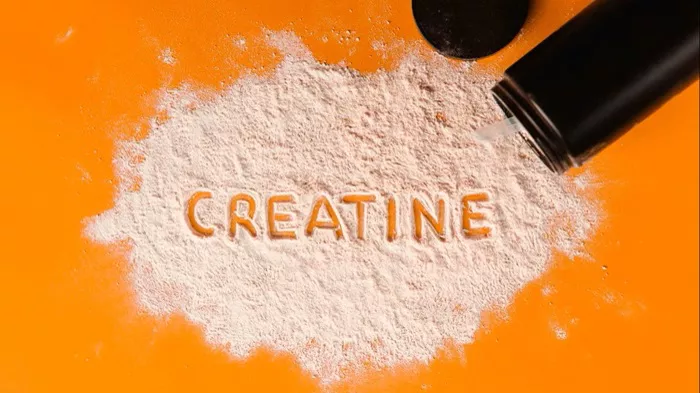When it comes to enhancing muscle growth and performance, creatine is a popular and effective supplement. But which creatine is best for women looking to achieve these goals? This article will dive into the best types of creatine for women’s muscle growth, explain how creatine works, discuss its benefits and potential side effects, and provide tips for its optimal use.
Best Creatine for Women
Creatine Monohydrate: Widely regarded as the best form of creatine for both men and women, creatine monohydrate is highly researched and proven to be effective. It’s also the most affordable option.
Creatine Hydrochloride (HCl): This form of creatine is known for its better solubility and absorption. It can be easier on the stomach, making it a good choice for women who may experience digestive issues with creatine monohydrate.
Buffered Creatine (Kre-Alkalyn): Buffered creatine is designed to be more stable and reduce the breakdown of creatine in the stomach, potentially enhancing its effectiveness and reducing side effects.
Micronized Creatine: This is simply creatine monohydrate that has been processed into smaller particles, improving its mixability in water and potentially its absorption.
How Does Creatine Work?
Creatine is a naturally occurring substance found in muscle cells. It helps produce adenosine triphosphate (ATP), the primary energy currency of the cell, especially during high-intensity, short-duration activities such as weightlifting and sprinting. When you supplement with creatine, you increase the stores of phosphocreatine in your muscles, allowing for quicker regeneration of ATP. This translates into improved performance, strength, and muscle growth.
Benefits of Creatine for Women
Increased Muscle Mass: Numerous studies have shown that creatine supplementation can lead to significant muscle hypertrophy.
Enhanced Strength and Power: Creatine helps improve the performance in high-intensity exercises, leading to better strength and power gains.
Improved Exercise Performance: With more ATP available, you can train harder and longer, contributing to overall fitness and muscle growth.
Better Muscle Recovery: Creatine may help in reducing muscle cell damage and inflammation, aiding in quicker recovery post-exercise.
Cognitive Benefits: Some research suggests that creatine supplementation can also enhance brain function and cognitive performance.
Potential Side Effects
While creatine is generally safe for most people, some may experience side effects such as:
Water Retention: Creatine causes muscles to draw in water, which can lead to temporary water weight gain.
Digestive Issues: Some individuals might experience stomach cramps, diarrhea, or bloating.
Kidney Concerns: There is no conclusive evidence that creatine harms kidney function in healthy individuals, but those with pre-existing kidney issues should consult a doctor before using it.
How to Use Creatine Effectively
Dosage: A common approach is to start with a loading phase of 20 grams per day (split into four doses) for 5-7 days, followed by a maintenance dose of 3-5 grams per day. Alternatively, you can skip the loading phase and take 3-5 grams daily from the start.
Timing: Creatine can be taken at any time, but some prefer taking it post-workout when muscles are primed to absorb nutrients. Others find it effective pre-workout or split throughout the day.
Hydration: Because creatine draws water into muscle cells, it’s essential to stay well-hydrated to avoid dehydration and support optimal muscle function.
Consistency: For best results, take creatine consistently, even on rest days, to maintain elevated muscle creatine stores.
Specific Creatine Recommendations
Optimum Nutrition Micronized Creatine Monohydrate: Known for its purity and quality, this creatine is micronized for better solubility and absorption.
Kaged Muscle C-HCl Creatine Hydrochloride: Ideal for those who have experienced digestive issues with other forms of creatine.
EFX Sports Kre-Alkalyn: This buffered creatine offers a stable and effective option with fewer reported side effects.
Bulk Supplements Creatine Monohydrate: An affordable and pure creatine monohydrate powder that is a great choice for budget-conscious individuals.
Additional Tips for Women Using Creatine
Combine with Protein: Pairing creatine with a protein source, like a post-workout shake, can enhance muscle recovery and growth.
Monitor Progress: Keep track of your workouts, strength gains, and muscle measurements to see how creatine is benefiting you.
Diet and Training: Ensure you have a balanced diet and a well-structured training program to maximize the benefits of creatine.
Consult a Healthcare Provider: If you have any health concerns or pre-existing conditions, consult a healthcare provider before starting creatine supplementation.
Conclusion
Creatine is a highly effective supplement for women looking to enhance muscle growth, strength, and overall exercise performance. Among the different types, creatine monohydrate stands out due to its extensive research backing, effectiveness, and affordability. However, other forms like creatine hydrochloride and buffered creatine may offer benefits for those who experience digestive issues. By understanding how to use creatine correctly and incorporating it into a well-rounded fitness routine, women can achieve significant improvements in their muscle growth and physical performance.
FAQs
Can women experience water retention with creatine?
Yes, creatine can cause water retention as it draws water into the muscle cells. This is typically temporary and can be managed by staying well-hydrated.
Is creatine safe for women to use long-term?
Creatine is generally considered safe for long-term use in healthy individuals. However, it’s advisable to consult with a healthcare provider, especially if you have any pre-existing health conditions.
Do I need to cycle creatine?
There is no strong evidence that cycling creatine is necessary. Consistent daily use of 3-5 grams can maintain elevated creatine levels in the muscles without the need for cycling.
Related topics:
- Top 20 Best Books on Perimenopause for 2024: Essential Reads to Navigate Your Transition
- Best Dietary Supplements for Women’s Weight Loss:A Comprehensive Guide
- Can HRT Make You Look Younger?


